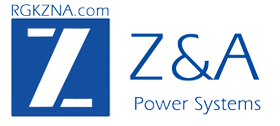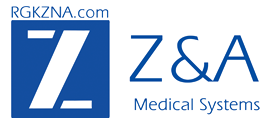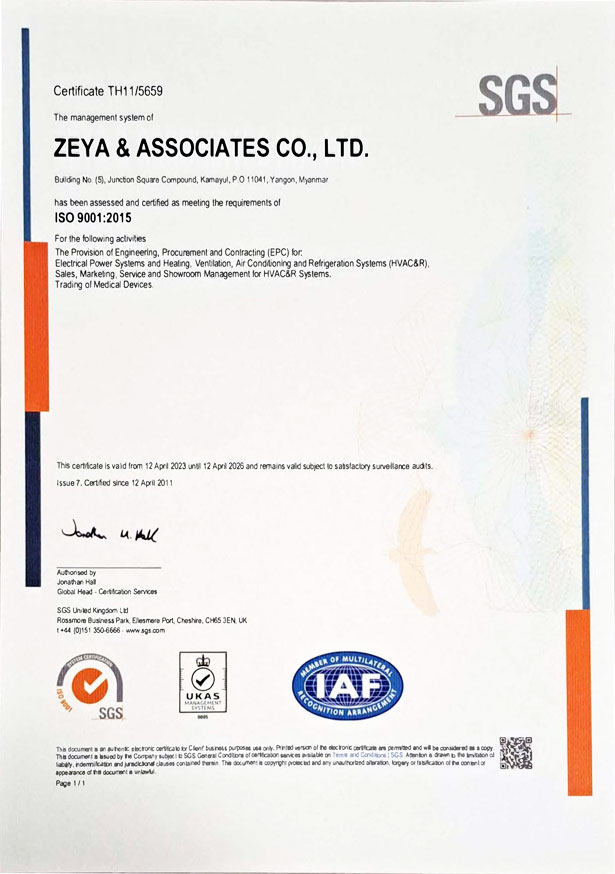
RGKZNA has been assessed and certified as meeting the requirements of ISO 9001:2015 for the following activities:
The Provision of Engineering, Procurement and Contracting (EPC) for Electrical Power Systems and Heating, Ventilation, Air Conditioning and Refrigeration Systems (HVAC&R), Sales, Marketing, Service and Showroom Management for HVAC&R Systems and Power Systems. Trading of Medical Devices.
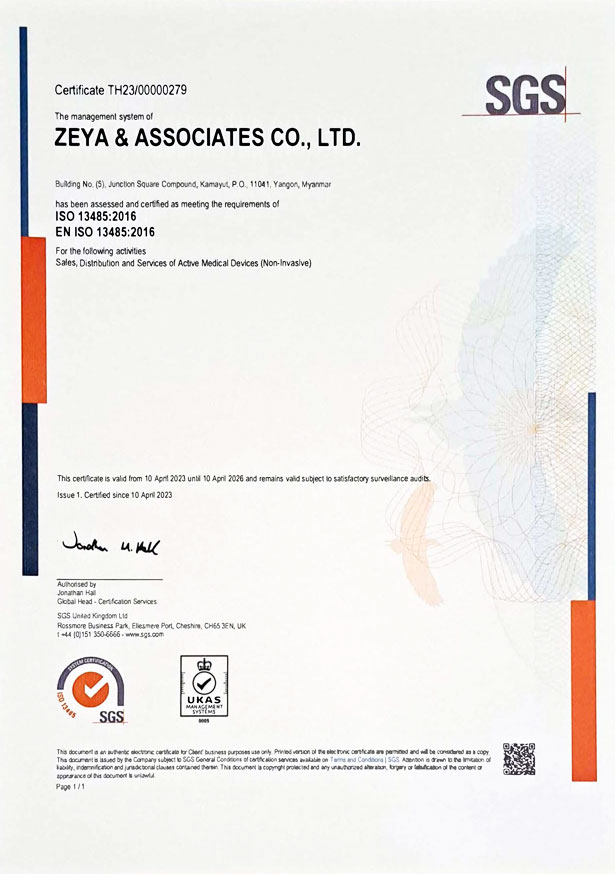
ZNA has been assessed and certified as meeting the requirements of ISO 13485:2016 EN ISO 13485:2016 for the following activities: Sales, Distribution and Services of Active Medical Devices (Non-Invasive)
Overview of the UN Global Compact
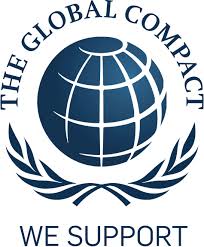 The UN Global Compact is a strategic policy initiative for businesses that are committed to aligning their operations and strategies with ten universally accepted principles in the areas of human rights, labour, environment and anti-corruption. By doing so, business, as a primary driver of globalization, can help ensure that markets, commerce, technology and finance advance in ways that benefit economies and societies everywhere.
The UN Global Compact is a strategic policy initiative for businesses that are committed to aligning their operations and strategies with ten universally accepted principles in the areas of human rights, labour, environment and anti-corruption. By doing so, business, as a primary driver of globalization, can help ensure that markets, commerce, technology and finance advance in ways that benefit economies and societies everywhere.
As social, political and economic challenges (and opportunities) — whether occurring at home or in other regions — affect business more than ever before, many companies recognize the need to collaborate and partner with governments, civil society, labour and the United Nations.
This ever-increasing understanding is reflected in the Global Compact's rapid growth. With over 12,000 corporate participants and other stakeholders from over 145 countries, it is the largest voluntary corporate responsibility initiative in the world.
Endorsed by chief executives, the Global Compact is a practical framework for the development, implementation, and disclosure of sustainability policies and practices, offering participants a wide spectrum of workstreams, management tools and resources — all designed to help advance sustainable business models and markets. (See How to Participate.)
The UN Global Compact works toward the vision of a sustainable and inclusive global economy which delivers lasting benefits to people, communities, and markets.
To help realize this vision, the initiative seeks to:
1. Mainstream the Global Compact’s Ten Principles in business strategy and operations around the world; and
2. Catalyze business action in support of UN goals and issues, with emphasis on collaboration and collective action.
With these objectives in mind, the Global Compact has shaped an initiative that provides collaborative solutions to the most fundamental challenges facing both business and society. The initiative seeks to combine the best properties of the UN, such as moral authority and convening power, with the private sector’s solution-finding strengths, and the expertise and capacities of a range of key stakeholders. The Global Compact is global and local; private and public; voluntary yet accountable.
The benefits of engagement include the following:
- Adopting an established and globally recognized policy framework for the development, implementation, and disclosure of environmental, social, and governance policies and practices.
- Sharing best and emerging practices to advance practical solutions and strategies to common challenges.
- Advancing sustainability solutions in partnership with a range of stakeholders, including UN agencies, governments, civil society, labour, and other non-business interests.
- Linking business units and subsidiaries across the value chain with the Global Compact's Local Networks around the world — many of these in developing and emerging markets.
- Accessing the United Nations' extensive knowledge of and experience with sustainability and development issues.
- Utilizing UN Global Compact management tools and resources, and the opportunity to engage in specialized workstreams in the environmental, social and governance realms.
A more detailed analysis of the benefits of participation in the Global Compact can be found in The Importance of Voluntarism — which also focuses on the importance of the Global Compact as a complement rather than substitute for regulatory regimes
Finally, the Global Compact incorporates a transparency and accountability policy known as the Communication on Progress (COP). The annual posting of a COP is an important demonstration of a participant's commitment to the UN Global Compact and its principles. Participating companies are required to follow this policy, as a commitment to transparency and disclosure is critical to the success of the initiative. Failure to communicate will result in a change in participant status and possible expulsion.
In summary, the Global Compact exists to assist the private sector in the management of increasingly complex risks and opportunities in the environmental, social and governance realms, seeking to embed markets and societies with universal principles and values for the benefit of all.
MEC ZNA Grade (A) up to 30 July 2025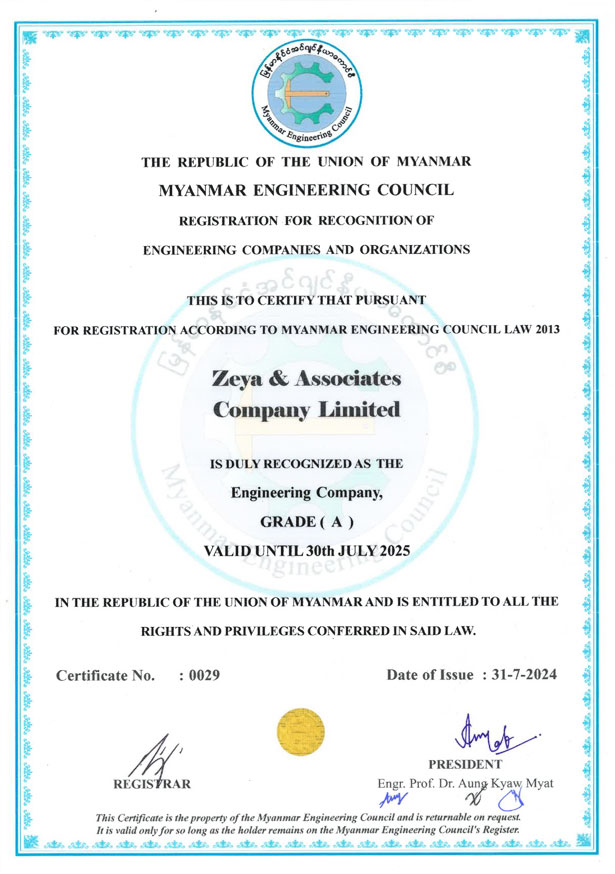 RGKZNA is duly recognized as The Engineering Company GRADE (A) by Myanmar Engineering Council. RGKZNA started joining the Myanmar Engineering Council in April 2018. |
Myanmar Computer Industry Association (MCIA – Yangon)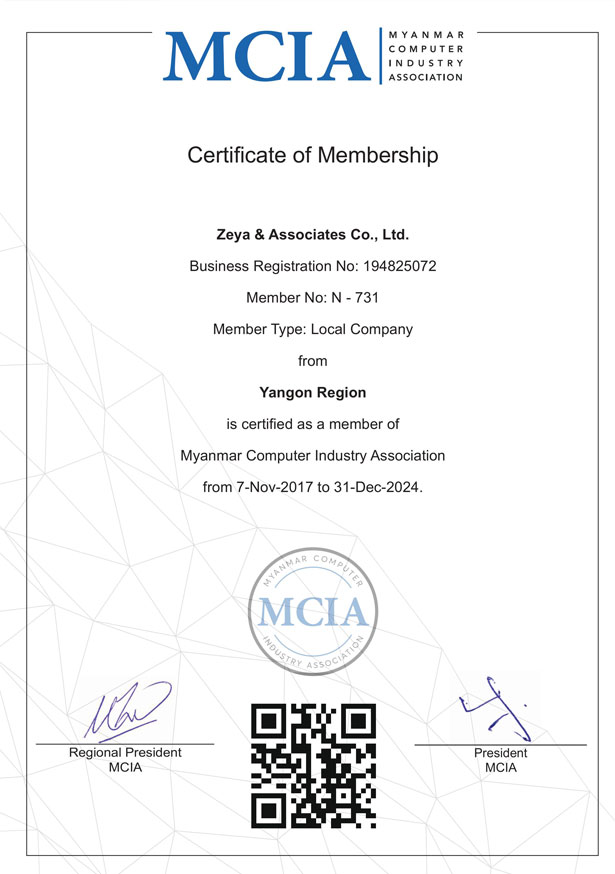 RGKZNA has been a member of Myanmar Computer Industry Association (MCIA – Yangon) since November 2017. |
Myanmar Construction Entrepreneurs’ Federation (MCEF)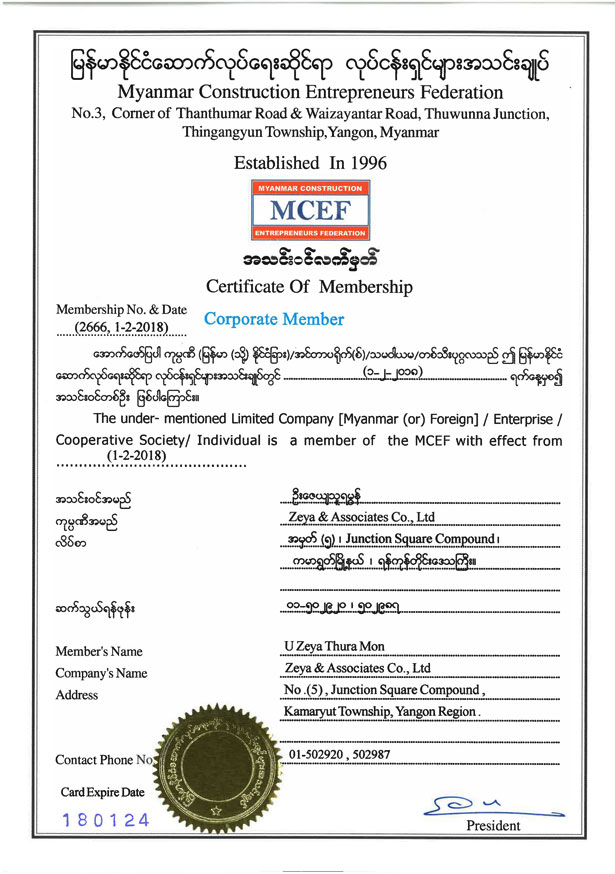 RGKZNA has been a Corporate Member of Myanmar Construction Entrepreneurs’ Federation (MCEF) since February 2018. |
UMFCCI (Z&A)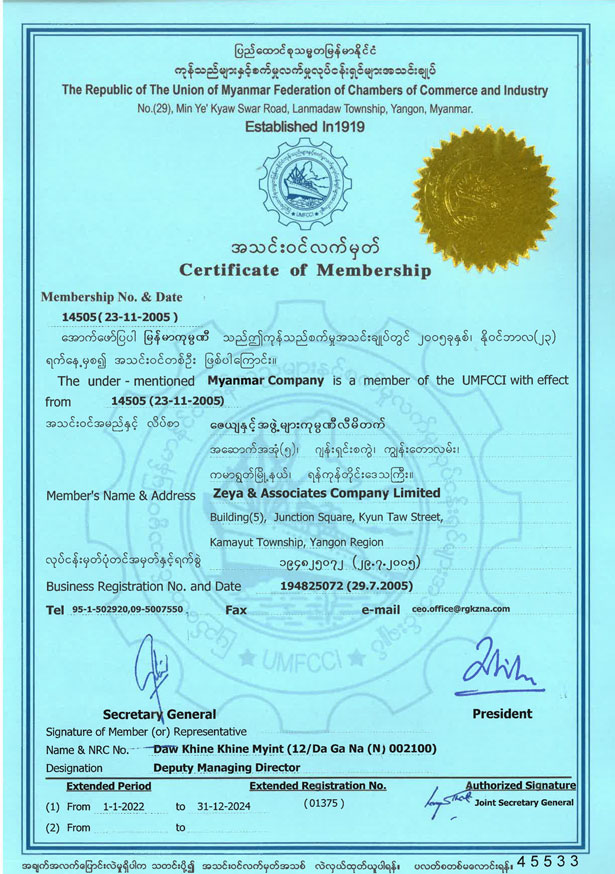 RGKZNA has been a member of Union of Myanmar Federation of Chambers of Commerce and Industry (UMFCCI) since November 2005. |
Federation of Myanmar Engineering Society (MES)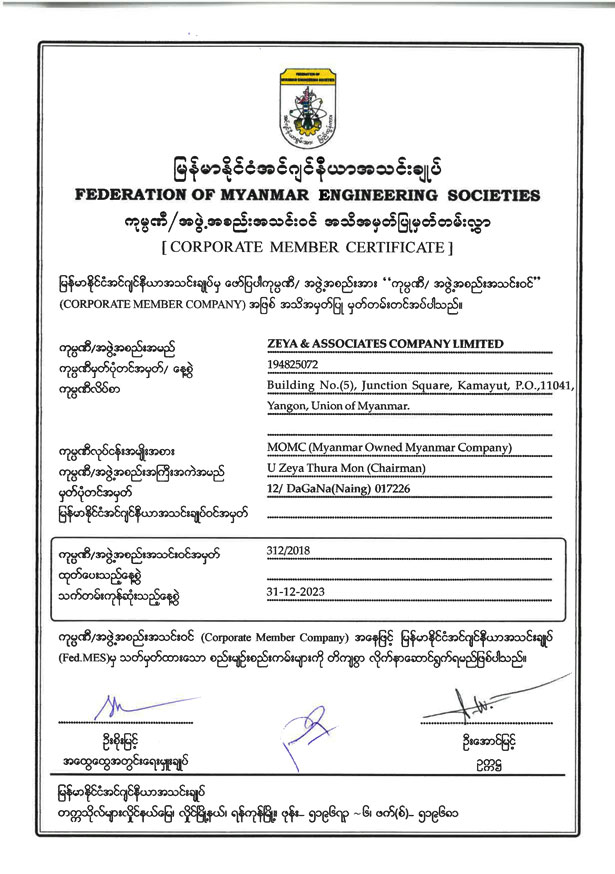 RGKZNA is one of the Corporate Members – CMC of Federation of Myanmar Engineering Society (MES) |
Myanmar Industry Association (MIA)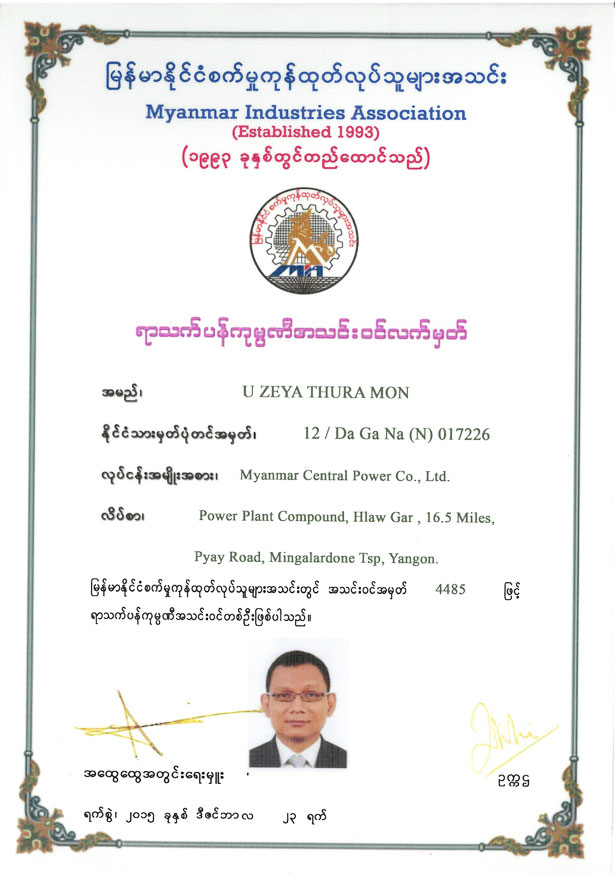 Myanmar Central Power (MCP) has been a Life Member of Myanmar Industry Association (MIA) since 2015. |
British Chamber of Commerce MM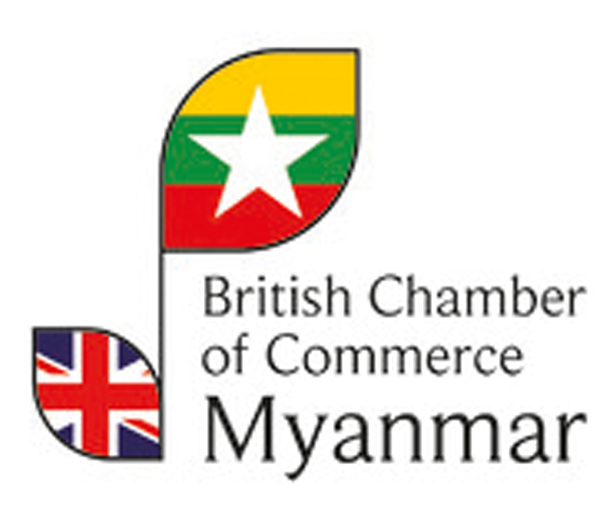 RGKZNA has been a Corporate Members of the British Chamber of Commerce Myanmar since 1 September 2016. |
Myanmar Oil & Gas Services Society (MOGSS)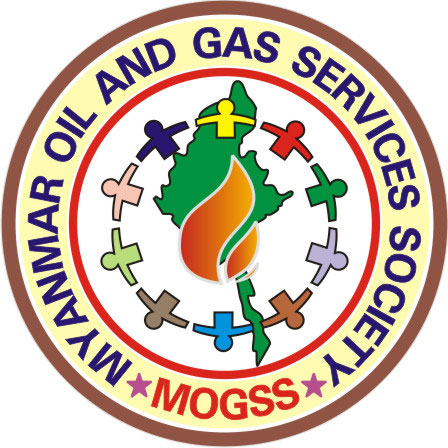 RGKZNA has been a Full-fledged Member of Myanmar Oil & Gas Services Society (MOGSS). |
Myanmar Hong Kong Chamber of Commerce and Industry RGKZNA has been a Corporate Member of Myanmar Hong Kong Chamber of Commerce and Industry since March 2020 |
Singapore Association Myanmar (SAM)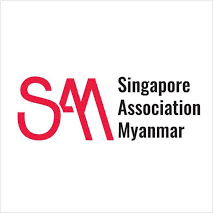 RGKZNA has been a Corporate Member of Singapore Association Myanmar (SAM). |
The World Bank Group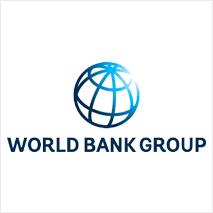 Chairman/ CEO of RGKZNA has been supporting Myanmar’s Ease of Doing Business Reform since May 2017. He was appreciated by Global Indicators Group, Development Economics, The World Bank Group in 2021. |
|



